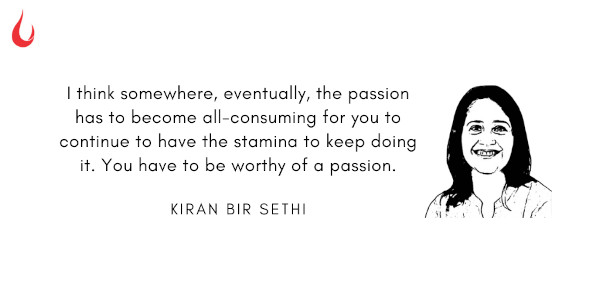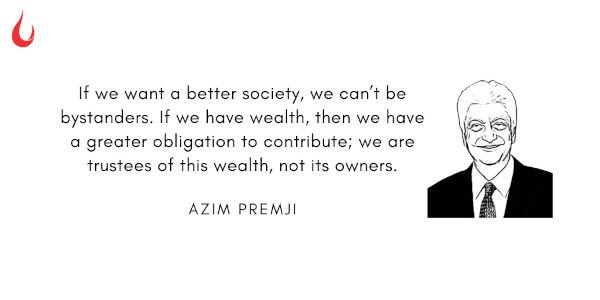[Photo by Vince Gx on Unsplash]
Good morning,
In Silence: The Power of Quiet in a World Full of Noise, Vietnamese Buddhist monk Thich Nhat Hanh recounts an anecdote about Thich Quang Duc, a monk who immolated himself in 1963.
“Thich Quang Duc wrote compassionate letters urging the president of (South) Vietnam to stop his persecution of the Buddhists… One day Thich Quang Duc had himself driven in an old car to an intersection in Saigon. He got out of the car, poured gasoline over himself, sat down beautifully in the lotus position, and struck a match. Five hours later the image of him sitting engulfed in flames in the middle of the intersection was available everywhere in the world, and people learned about the suffering of the Vietnamese people. A month or two later, the regime was brought down by a military coup, ending that policy of religious discrimination and persecution.
“Many people asked the question: ‘Isn’t that a violation of the precept concerning not killing?’ I wrote Dr. Martin Luther King Jr. a letter sharing with him that this was not really a suicide. When you commit suicide, you are in despair; you don’t want to live anymore. But Thich Quang Duc was not like that. He wanted to live. He wanted his friends and other living beings to live. He loved being alive. But he was free enough to offer his body in order to get the message across: ‘We are suffering and we need your help.’ Because of the great compassion in him, he was able to sit very still in the fire, in perfect concentration. I shared with Dr. King my understanding that when Jesus died on the cross, he made the choice to die for the benefit of others—not out of despair but out of the will to help. That is exactly what Thich Quang Duc wanted to do. He committed this action not out of despair but out of hope and love, using his body in order to bring change to a desperate situation.
“I tell this story not because I think you should do something this drastic, but simply to illustrate the power of silent action. We all want to change certain things or convince someone of something. If you have some small matter at work or in a relationship that you want to change and you’ve tried talking about it without results, consider the strength that is possible in silent action.”
Worth thinking about, isn’t it?
In this issue.
- What it takes to follow your passion
- Azim Premji on people and philanthropy
- Perspective matters
What it takes to follow your passion
In the latest episode of Season 02 of Talkin’ ‘Bout My Generation, mother and son duo Kiran Bir Sethi and Raag Sethi explore how one should discover, pursue and commit to their passion.
Kiran started her career as a designer and pivoted to being an educationist in her 30s. Raag tried his hand at billiards, following his champion father Geet Sethi, and at education, supporting his mom's venture—and finally found his calling in music.

Here’s an excerpt from their conversation as they reflected on what they learned from their journey
Kiran: Three things that I have learned:
- One is, growing up, if you are released from this ‘what will other people say’ pressure, you give your child the freedom to realize their authentic self.
- Two, if you do find whatever you are doing, you have to be really worthy of it. You have to commit to the long hours. You need stamina. It's not just the fun and stuff.
- Three, you talked about no hurry. It needs to bake and find its way.
Raag: People expect a sprint, a quick dash to the finish line. Everybody who has had an obsessive passion knows that it's a marathon
Dig Deeper
Azim Premji on people and philanthropy
Mint reports, “With a donation of Rs 7,904 crore, Azim Premji, the founder-chairman of Wipro, topped the list of philanthropists in India for 2020. He donated Rs 22 crore per day. ‘On 1 April, Azim Premji Foundation, Wipro, and Wipro Enterprises have committed Rs 1,125 crore towards tackling the Covid-19 pandemic outbreak. These are in addition to the annual CSR activities of Wipro, and the usual philanthropic spending of the Azim Premji Foundation,’ according to EdelGive Hurun India Philanthropy List 2020.”

In an interview to Mitu Jayashankar eight years ago, Azim Premji explained what philanthropy meant to him, and how he approaches it. The fundamental principles still hold good. One of the questions Mitu asked Premji was, Were there any parallels or learning’s from your corporate career when creating the Azim Premji Foundation?
Here’s Premji’s reply: “More important than money is people… so merely by committing money to a cause, change won’t happen. Getting good people is the crucial issue… and then let them do their jobs. I can’t emphasise this aspect enough… once good people are on board, you have to let them get on with it, you have to let go… there is no other way to build something which will outlast you, and that only can be a truly sustained contribution.”
Dig Deeper
- If We Want A Better Society, We Can’t Be Bystanders - Forbes India
- Azim Premji has donated Rs 22 crore/day; tops EdelGive Hurun India Philanthropy list - Mint
Perspective matters

(Via WhatsApp)
Tell us what you think and find noteworthy. Head over to our Slack channel.
And if you missed previous editions of this newsletter, they’re all archived here.
Bookmark Founding Fuel’s special section on Thriving in Volatile Times. All our stories on how individuals and businesses are responding to the pandemic until now are posted there.
Warm regards,
Team Founding Fuel

